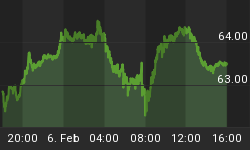Moral Hazard, Unintended Consequences & Dysfunctional Markets - Part II
The Federal Reserve and its Monetary Malpractice is at the core of the American Dream becoming a myth for the vast majority of Americans. Jobs, disposable income and financial security are all under pressure, as the Federal Reserve continues its historic monetary gamble on unproven policies of Quantitative Easing and ZIRP. They are clearly failing to achieve the Feds dual manadate in the same fashion as these same policies failed Japan.
John Rubino and Gordon T Long in the second of this two part series discuss how these policies have led to Moral Hazard, which has lead to Unintended Consequences and in turn to Dysfunctional Markets. A broad range of examples for each is laid out for the listener to see how they are interwhined and how they all stem from Monetary Malpractice.
26 Minutes, 37 Slides
MP3 Audio Presentation Link
Unsound Money Jeopardizes Our Constitutional Rights
with John Rubino
It can not be overstated the importance SOUND MONEY plays in protecting the public's Constitutional Rights, the control of relentless government spending and the limitation of political 'reach' and growth of socialist programs. This fact was well understood even before the founding of the US Federal Reserve.
The Austrian Economist Ludwig von Mises wrote in 1912 in 'THE THEORY OF MONEY & CREDIT", prior to the existance of the Federal Reserve that:
"It is impossible to grasp the meaning of the idea of sound money if one does not realize that it was devised as an instrument for the protection of civil liberties against despotic inroads on the part of governments. Ideologically, it belongs in the same class with political constitutions and bills of rights."
Gordon T Long and John Rubino explore how we have lost sight of this important economic tenet and why as a consequence our constitutional rights are now under stealth and unwitting attack.
John Rubino
20 Minutes, 19 Slides
MP3 Audio Presentation Link
Direct RSS Feed
Macro Analytics - Complete Download LIBRARY















